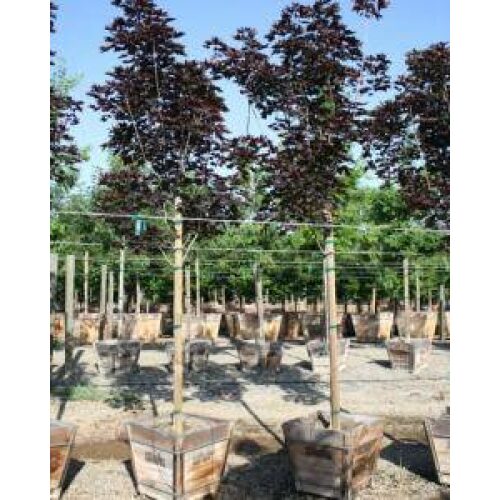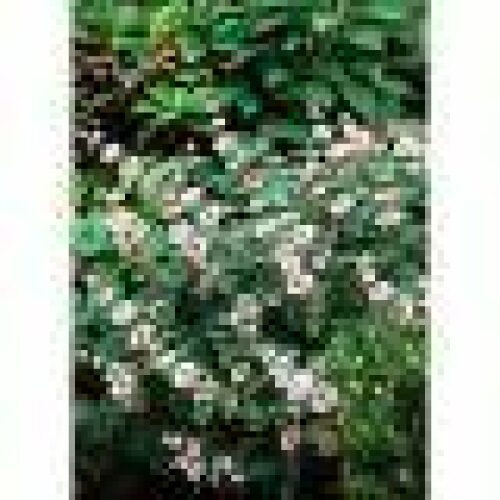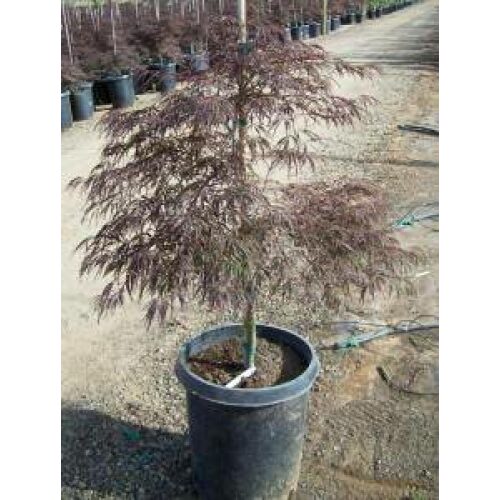Quercus rubra
Northern Red Oak
| Evergreen-Deciduous | Deciduous |
|---|---|
| Overall Mature Size | Large |
| Mature Height & Spread | 60-80' x 35-40' |
| Exposure | Full sun |
| Water | Medium Water |
| Flower Color | Inconspicuous |
| Bloom Time | Fall |
| Special Features | Attracts Birds, Butterflies, Deer Resistant, Fall Color |
| Container Sizes | #5, #15, 24" box, 36" box |
| Natural Growth Habit | Conical |
| Sunset Garden Zones | 1-10, 14-21 |
| Minimum USDA Hardiness Zone | 4 |
| Plant Type | Tree |
Moderate to fast-growing deciduous tree with a pyramidal growth-habit to 60-80’ tall x 35-40’ wide. This Eastern US native is pyramidal in youth, eventually forming a rounded canopy of attractive, deeply-lobed, dark-green leaves with small bristles at their lobe apex and tips. Prized for its eye-catching display of fall color, with leaves turning vibrant shades of orange, red and brown in the cool of fall. Unlike some oaks, this species is deep rooting and far less likely to develop surface rooting issues. Inconspicuous spring flowers are followed by ¾ – 1” round acorns that mature to a grayish-brown in fall, and are often numerous, which should be considered when choosing a planting location. Performing best in regions with cool moist winters, this species is well-suited for large open areas, parks or large lawn areas, and prefers a fertile, slightly acidic well-drained soil in a full sun exposure. It should be noted that this species is known to be a host for Sudden Oak Death (a pathogen that has in recent years claimed a number of these trees in various regions of California).




